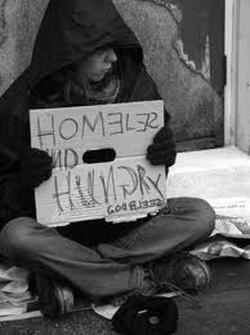
Writers Name: Rosey Denise White
Title: Being Homeless is Not Only about Not Having a Home
Chances are you have never been homeless. If this is true, consider yourself among a fortunate few because too many have experienced the ugly plight of homelessness. Some may assume that homelessness is just about not having a place to stay but it really is about so much more than that. Lacking a safe, stable home is just a fraction of the story for any homeless person. Being homeless may mean lacking the skills necessary to get back on your feet. Perhaps addiction isn’t the reason they are homeless but the experienced homelessness due to a job loss or abuse. A homeless person might be able to find a shelter and food that supply their physical needs but what about the emotional impact? Every homeless person you encounter on the street has a story. Something tragic occurred in his or her life that lead them to be without a permanent home. Very often those tragedies impact the ability to put their life back together in a positive fashion.
The best thing a person with a home can do is learn how to support someone who doesn’t have one. This support does not necessarily mean opening your doors to strangers, although some may feel led to show compassion in this way. The more important thing we can do to support the homeless in our communities is by first showing that we care. Here are ten easy tasks we can all make an effort to do that will inspire the homeless in our neighborhoods.
- Don’t ignore them. The most disrespectful thing we could do to a homeless person is treat them like they do not exist - as if they are beneath us or aren’t deserving of basic human compassion. How many times have you turned your nose up at a homeless pandhandler? Be honest. Often we form opinions about the lives of strangers we do not know. Be considerate because one day you could be in their shoes.
- Volunteer. If we can spend time engaging in social media activities, just an hour of sacrifice from this could be diverted to volunteering at a homeless shelter, soup kitchen or providing a service. Teach someone who is homeless how to read. Help them with a resume etc. Not only are you helping others, you can also get a fresh perspective of the plight of those without permanent places to lives.
- Considering hosting your own soup kitchen. It is not hard to get a temporary food handlers permit in your local state. This is generally all that is required to serve food to the homeless. Check with the department of health and human services for further information.
- Donate. Many of the shelters and soup kitchens are non-profits where the demand is greater than the resources. Just $20 can go a long way in helping someone who is homeless.
- Buy a stranger a meal. I know many times we are reluctant to give money to strangers. The next time a panhandler asks for spare change, ask him or her if they are hungry. Offer to buy them a meal instead. I’ve personally done this a few times and I know the feeling of helping another will last you a lifetime.
- Speak up! Sometimes people think that only homeless persons are out on the street. This is a myth. Chances are someone you know (a co-worker, friend, neighbor) is on the verge of being homeless right now.
- Devote your craft to their need. Are you an author, singer, poet, musician etc.? Consider donating a portion of your show and proceeds to a homeless shelter or other organization.
- Blog about homelessness. Write about the plight of homelessness of not only those in your city, but the plight that affects so many worldwide. This brings an overall awareness to homelessness and may encourage others to get involved.
- Hold a free garage sale. Need to get rid of a few things? Instead of focusing on the money you could earn, think about the people you could help. Put up signs offering FREE clothes, shoes or whatever you have. Give it away to someone else who really needs it.
- Make helping others a regular task. Don’t wait until seasons change, or holiday time to get in the spirit of giving. Develop a conscious effort to help at least one homeless person a month in your area. It doesn’t have to be elaborate…a cup of coffee goes a long way for someone who doesn’t have anything.

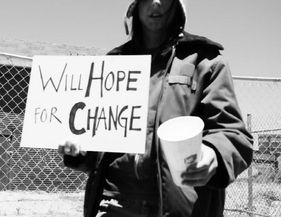
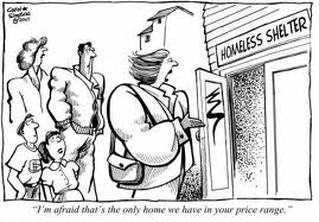
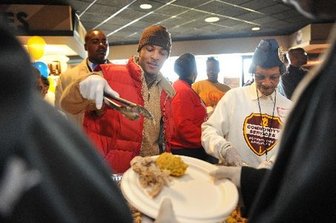
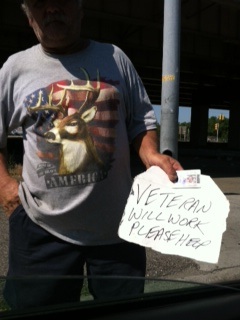
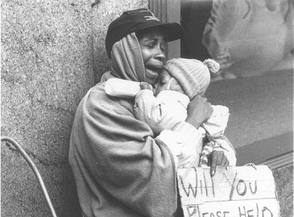
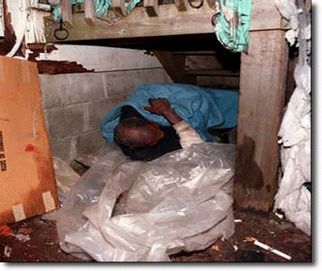
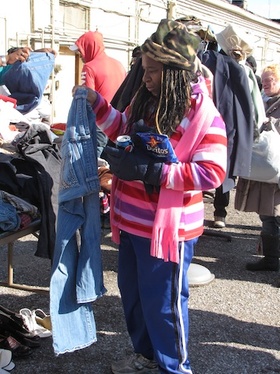
 RSS Feed
RSS Feed
